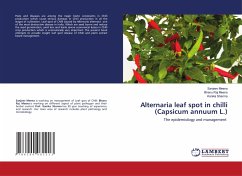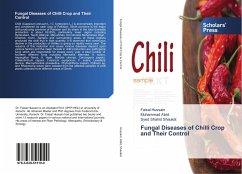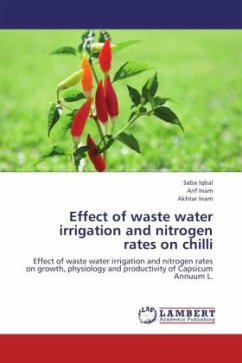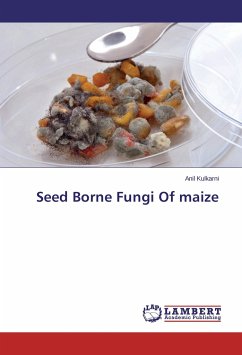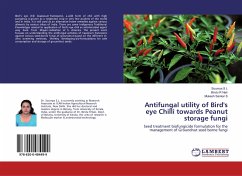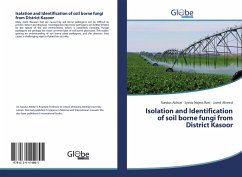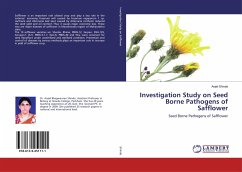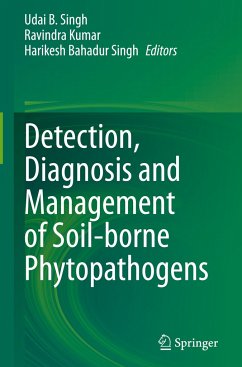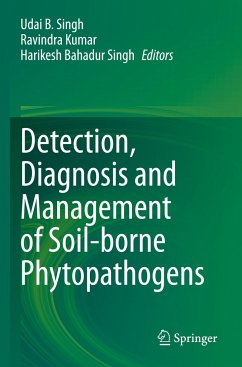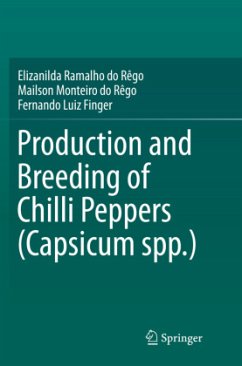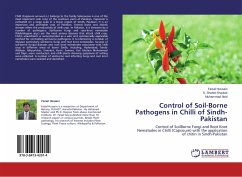
Control of Soil-Borne Pathogens in Chilli of Sindh-Pakistan
Control of SoilBorne Fungi and Root Knot Nematodes in Chilli (Capsicum) with the application of chitin in Sindh-Pakistan
Versandkostenfrei!
Versandfertig in 6-10 Tagen
27,99 €
inkl. MwSt.

PAYBACK Punkte
14 °P sammeln!
Chilli (Capsicum annuum L.) belongs to the family Solanaceae is one of the most important cash crop of the southern parts of Pakistan. Capsicum is cultivated on a large scale in a lower region of Sindh, Pakistan. It is an important and profitable crop of Pakistan. Several biotic and abiotic stresses affect the productivity of chilli crop. In Pakistan, it is threaten by a number of pathogens. Soil-borne fungi and root-knot nematode (Meloidogyne spp.) are the most serious diseases that attack chilli crop. Chitin amendment is recommended as a safe and commercially applicable method for controllin...
Chilli (Capsicum annuum L.) belongs to the family Solanaceae is one of the most important cash crop of the southern parts of Pakistan. Capsicum is cultivated on a large scale in a lower region of Sindh, Pakistan. It is an important and profitable crop of Pakistan. Several biotic and abiotic stresses affect the productivity of chilli crop. In Pakistan, it is threaten by a number of pathogens. Soil-borne fungi and root-knot nematode (Meloidogyne spp.) are the most serious diseases that attack chilli crop. Chitin amendment is recommended as a safe and commercially applicable method for controlling soil borne pathogens. It is infected by a number of diseases particularly soil-borne fungi and root knot nematodes. Surveys of soil-borne fungal diseases and root knot nematodes associated with chilli crop in different areas of lower Sindh, including, Hyderabad, Tando Allahyar, Mirpurkhas, Umerkot, Kunri, Samaro, Kot Ghulam Muhammad and Digri, were conducted, and chilli plants showing symptoms of wilting were collected. A number of soil-borne root infecting fungi and root knot nematodes were isolated and identified.



